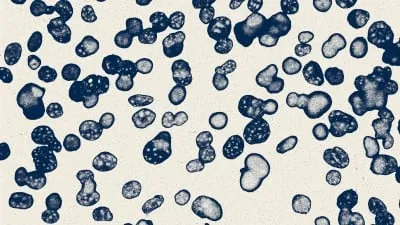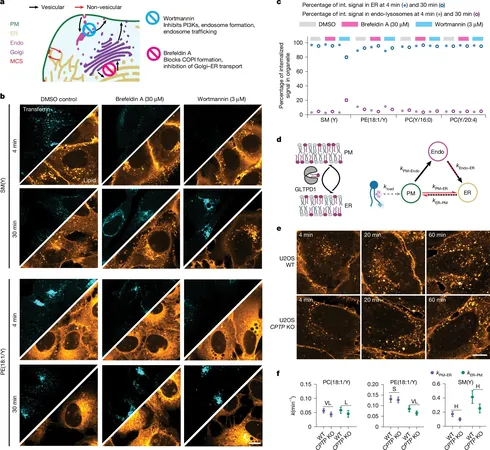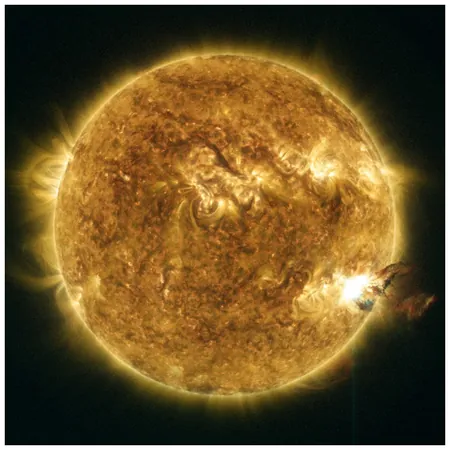
Revolutionary Study Uncovers Secrets of Prostate Cancer Resistance to Treatment
2025-08-28
Author: Mei
Prostate cancer is a leading cause of cancer-related deaths in men, but not all patients respond to treatment in the same way. While many have positive responses in the early stages, some face a formidable progression towards a more aggressive and resistant form of the disease.
A groundbreaking study published in the *Proceedings of the National Academy of Sciences* from researchers at the University of Michigan is shedding light on this troubling issue. By unveiling the cellular features that dictate how tumor cells react to treatment, this research provides a potentially transformative view into treatment resistance.
Typically, advanced prostate cancers are tackled with androgen deprivation therapy (ADT). Unfortunately, for patients resistant to this approach, treatment options remain scarce, primarily due to an incomplete understanding of the underlying mechanisms.
Innovative Research Techniques Illuminate Cancer Cell Behavior
To gain insight into this resistance, researchers have often turned to genetically engineered mouse models, which, until now, have failed to replicate the full complexity of human prostate cancer. In this innovative study, the team employed advanced methodologies like single-cell RNA sequencing, multiomics, and spatial transcriptomics to construct a detailed cellular atlas.
By analyzing the prostate cells of mice, they identified distinct cell types, their specific locations, and the mechanisms driving the disease progression. Assistant Professor Sethu Pitchiaya remarked, “This is the first time anyone has used these three tools to get an integrated view of prostate cancer treatment response and resistance.”
Connecting Mouse Research to Human Cancer
What makes this study significant is its ability to draw parallels between mouse models and human prostate cancer data available in public databases. This comprehensive atlas serves not only as an advanced research tool but as a beacon for understanding how prostate tumors evolve in response to therapy.
The researchers observed that androgen deprivation therapy actively reshapes cellular interactions within mouse prostates, pushing pathways that aid in stress response and new cell development. Surprisingly, over 20 genes, including those from the AP-1 and Klf gene families, showed increased activity in these mice. Even more strikingly, these same genes were elevated in human patients undergoing ADT who exhibited treatment resistance.
A Roadmap to Next-Gen Cancer Therapies
The research team is keen on utilizing their findings to sequence human tissue samples, aiming to create an exhaustive list of markers for treatment response and potential therapeutic targets.
Although many promising proteins identified in this study are challenging to target with drugs, the researchers are actively seeking innovative methods to approach this problem. As Dr. Arul Chinnaiyan, a leading investigator in the study, states, “This study not only reveals the hidden diversity of prostate cell types but also pinpoints the programs that allow cancer cells to survive androgen deprivation therapy.”
The insights gained from this research could pave the way for developing next-generation therapies, potentially offering hope to patients struggling with advanced prostate cancer and treatment resistance.
This major breakthrough signals a new frontier in prostate cancer research, illuminating the path toward more effective treatments and better patient outcomes.




 Brasil (PT)
Brasil (PT)
 Canada (EN)
Canada (EN)
 Chile (ES)
Chile (ES)
 Česko (CS)
Česko (CS)
 대한민국 (KO)
대한민국 (KO)
 España (ES)
España (ES)
 France (FR)
France (FR)
 Hong Kong (EN)
Hong Kong (EN)
 Italia (IT)
Italia (IT)
 日本 (JA)
日本 (JA)
 Magyarország (HU)
Magyarország (HU)
 Norge (NO)
Norge (NO)
 Polska (PL)
Polska (PL)
 Schweiz (DE)
Schweiz (DE)
 Singapore (EN)
Singapore (EN)
 Sverige (SV)
Sverige (SV)
 Suomi (FI)
Suomi (FI)
 Türkiye (TR)
Türkiye (TR)
 الإمارات العربية المتحدة (AR)
الإمارات العربية المتحدة (AR)